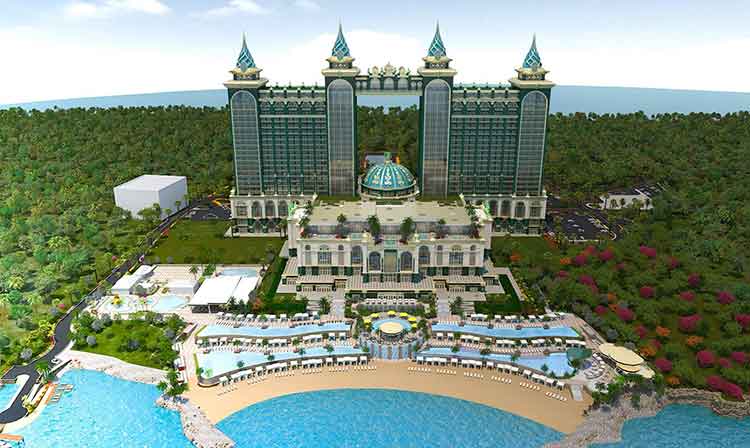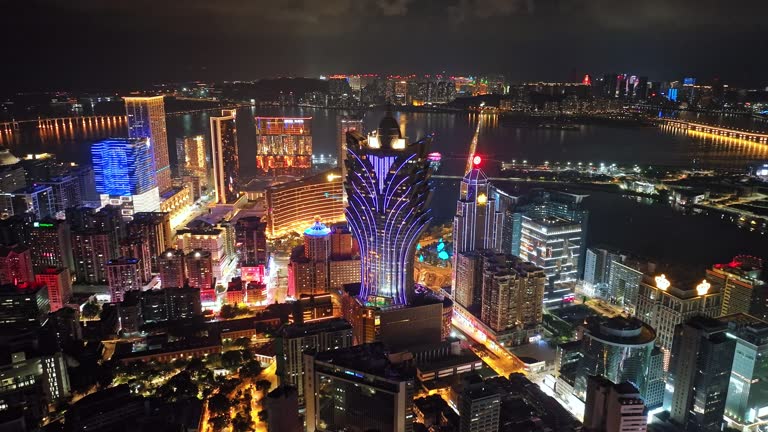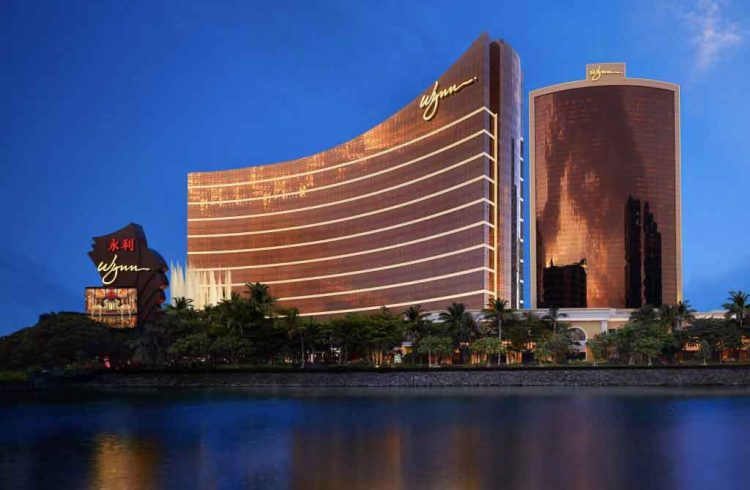Asia Gaming Weekly News Bulletin – ISSUE 28 Week of 18 August 2025
(1) PH Resorts Group derecognises almost US$400 million in property, financial liabilities linked to failed Emerald Bay project in Cebu
PH Resorts Group derecognised the Emerald Bay integrated resort in Cebu for its failing to exercise its buyback option with Chinabank under a sale-and-leaseback refinancing deal because of the financial strain.
(2) Sri Lanka moves closer to establishing Gambling Regulatory Authority
Sri Lanka’s Parliamentary Committee on Public Finance (CoPF) approved the Gambling Regulatory Authority Bill on 12 August, aiming to oversee betting and gaming operators throughout the country by regulation and licensing all gambling operations, from casinos to online platforms. The Bill will be presented to Parliament for further debate.
(3) Macau casino resorts set to host more than 30 arena-based shows in August
Macau’s integrated casino resorts are set to host over 30 arena-based concerts and events in August 2025, marking a strategic shift toward positioning the city as a premier entertainment destination beyond gaming.
(4) Wynn Macau Ltd completes US$1 billion notes offering
Wynn Macau raised US$1B via 2034 bonds to refinance debt, with flexible early-redemption options. Proceeds will also fund US$750M in resort upgrades, including a new events centre, as Macau’s tourism rebounds.
(1) PH Resorts Group derecognises almost US$400 million in property, financial liabilities linked to failed Emerald Bay project in Cebu

(Photo Credit: Inside Asian Gaming)
PH Resorts Group has officially derecognised the stalled Emerald Bay integrated resort in Cebu, along with associated financial liabilities, after failing to exercise its buyback option with Chinabank. The developer entered a sale-and-leaseback refinancing deal in October 2023, which included a repurchase clause contingent on securing new investors by March 2025. However, after negotiations with potential backers – including Bloomberry Resorts and Tiger Resort, Leisure and Entertainment Inc. (TRLEI) – collapsed, Chinabank revoked the buyback option in May, leaving PH Resorts with no path to reclaim the property.
The company reported a net loss of Php6.75 billion (US$118 million) for the first half of 2025, driven by the derecognition of Emerald Bay’s Php13.7 billion (US$240 million) asset value and Php8.75 billion (US$153 million) in related liabilities. Even after offsetting unrealized revaluation gains, the net loss on liability extinguishment stood at Php3.29 billion (US$57.7 million). As of June 30, 2025, PH Resorts faces a liquidity shortfall, with current liabilities exceeding assets by Php4.81 billion (US$84.3 million), raising “significant doubt” about its ability to continue as a going concern.
Despite the financial strain, PH Resorts remains in discussions with lenders and potential strategic investors to secure fresh capital. Management expressed confidence that ongoing due diligence processes could yield agreements to stabilise operations and fund project completion. However, the company’s survival hinges on these negotiations materialising, as alternative solutions – such as stock subscriptions and advances from related parties – remain uncertain. Without a viable resolution, the future of PH Resorts and its remaining ventures remains in jeopardy.
News Source: https://asgam.com/2025/08/18/ph-resorts-group-derecognizes-almost-us400-million-in-property-financial-liabilities-linked-to-failed-emerald-bay-project-in-cebu/
(2) Sri Lanka moves closer to establishing Gambling Regulatory Authority

(Photo Credit: World Casino News)
CoPF’s approval of the Gambling Regulatory Authority (GRA) Bill on August 12 marks a significant step toward establishing a unified oversight body for the country’s gaming sector. Chaired by MP Rauff Hakeem, the committee endorsed the framework designed to standardise operations across casinos and online platforms while addressing social harms and boosting tourism. The bill proposes replacing outdated laws with a modernised system encompassing licensing, anti-money laundering protocols, and tourism development. This development follows the recent $1.2 billion opening of Melco Resorts’ City of Dreams Sri Lanka, the nation’s largest private investment to date.
The GRA’s governance would involve key officials including the Finance Ministry Secretary and Police Chief, alongside three ministerial appointees. However, Colombo-based think tank Advocata Institute has raised concerns about compromised independence, noting the Finance Minister’s sweeping powers to appoint leadership and issue binding directives. Additional gaps include the exclusion of online gambling oversight, no representation from tourism authorities, and continued reliance on operator self-reporting for tax collection. Critics also highlight penalties for unlicensed operations that fall below international standards, potentially weakening compliance incentives.
The government emphasises the bill’s potential to attract foreign investment and increase tax revenue, evidenced by recent hikes in casino entry levies (from $50 to $100) and gambling revenue taxes (15% to 18%). While Sri Lanka’s gambling market is projected to grow from $294 million (2020) to $410 million by 2026, analysts warn that delays in reform could cede opportunities to regional competitors like the UAE and Thailand. The bill now moves to Parliament for debate, where amendments may address autonomy concerns and regulatory loopholes.
News Source: https://news.worldcasinodirectory.com/sri-lanka-moves-closer-to-establishing-gambling-regulatory-authority-119409
(3) Macau casino resorts set to host more than 30 arena-based shows in August

(Photo Credit: IGamingToday)
Macau’s integrated casino resorts are set to host over 30 arena-based concerts and events in August 2025, marking a strategic shift toward positioning the city as a premier entertainment destination beyond gaming. Major venues such as the Galaxy Arena, Venetian Arena, and The Londoner Arena will feature a diverse line-up, including Hong Kong star Eason Chan’s six-show residency, the TMElive International Music Awards, and K-pop and live music performances. This push leverages Cotai’s world-class infrastructure to attract international acts and broader demographics, supporting Macau’s post-pandemic tourism recovery.
The entertainment expansion reflects Macau’s broader effort to diversify its economy by blending gaming with high-profile cultural events. State-of-the-art venues, equipped with cutting-edge production capabilities, enable the city to compete globally for major tours and award ceremonies. Industry analysts note that such events drive ancillary revenue across hospitality, retail, and gaming sectors while enhancing Macau’s reputation as a cosmopolitan hub. The August schedule alone is expected to draw regional audiences, reinforcing longer visitor stays and spending.
Government and resort operators are aligning this entertainment focus with policies encouraging a balanced tourism model. By integrating concerts, awards shows, and live performances, Macau aims to appeal to younger travellers and luxury seekers alike.
News Source: https://www.igamingtoday.com/macau-casino-resorts-set-to-host-more-than-30-arena-based-shows-in-august/
(4) Wynn Macau Ltd completes US$1 billion notes offering

(Photo Credit: Inside Asian Gaming)
Wynn Macau Ltd. has successfully issued US$1 billion in 6.75% senior notes maturing in 2034, with plans to list them on the Hong Kong Stock Exchange. The company expects net proceeds of approximately US$989 million, which will primarily be used to repay existing debts, including balances under the WM Cayman II Revolver and other senior notes. This strategic move aims to strengthen the company’s financial position amid ongoing capital commitments.
The bond terms allow Wynn Macau to redeem up to 35% of the notes before August 2028 at 106.75% of principal value, plus accrued interest, using proceeds from future equity offerings. Post-2028, the company can redeem the notes at decreasing premiums, starting at 103.375% before settling at 100% by maturity. These flexible terms provide Wynn with financial manoeuvrability while balancing investor returns and corporate liquidity needs.
Alongside its debt refinancing, Wynn Macau has earmarked up to US$750 million through 2026 for resort enhancements, including a new large-scale events centre at Wynn Palace and upgrades to premium gaming spaces and hotel rooms. These investments align with Macau’s post-pandemic recovery efforts, positioning Wynn to capitalise on returning tourism and high-end demand.
News Source: https://asgam.com/2025/08/20/wynn-macau-ltd-completes-us1-billion-notes-offering/


